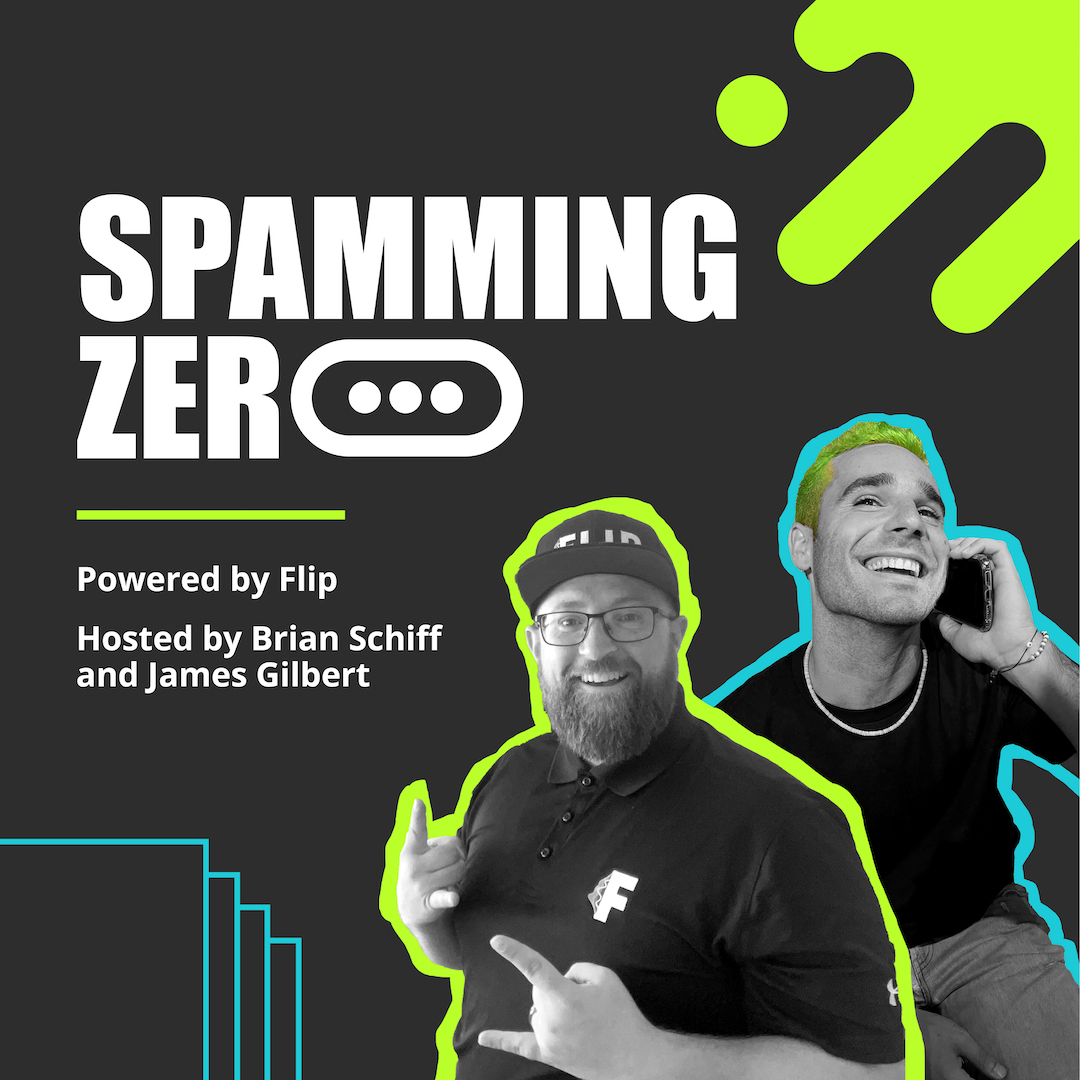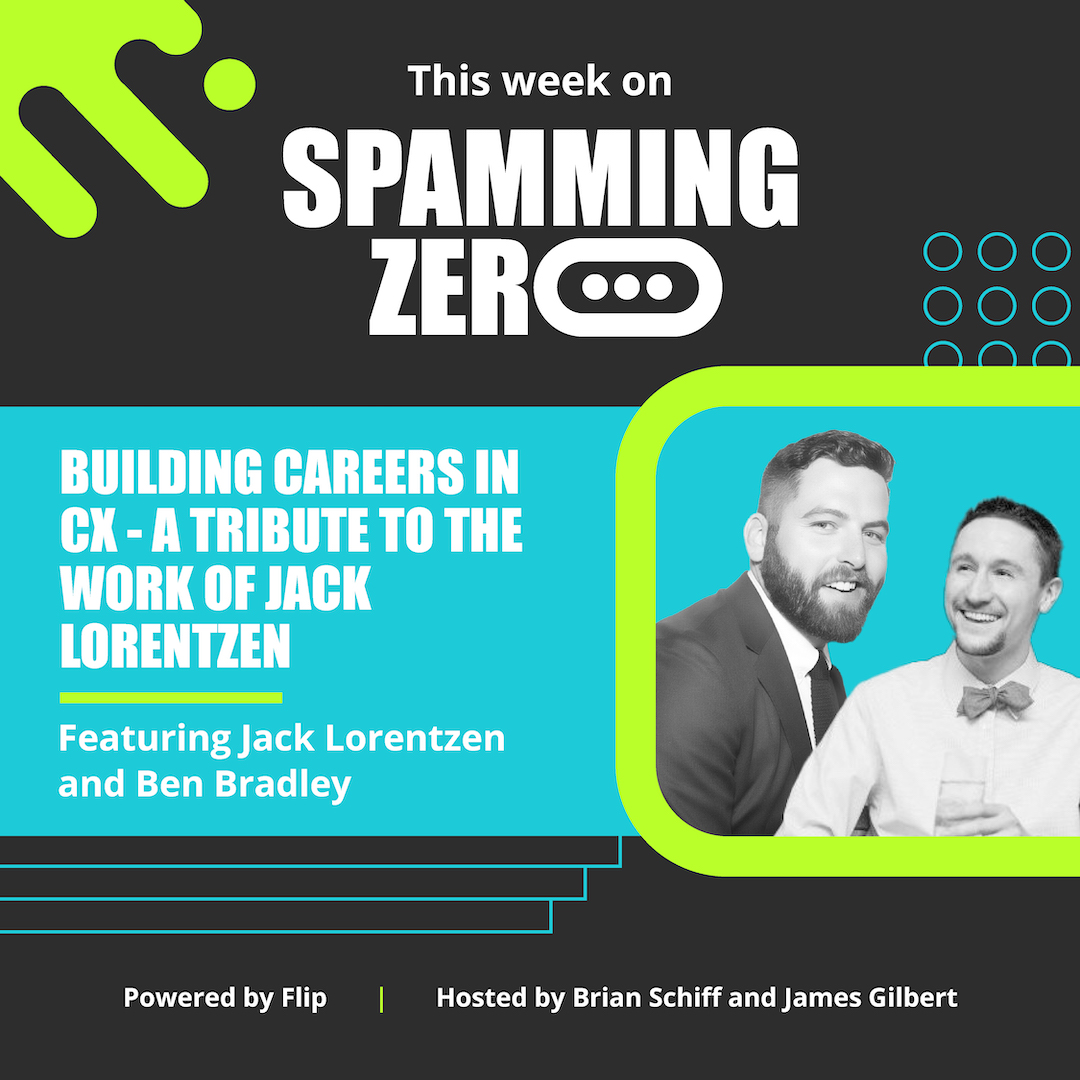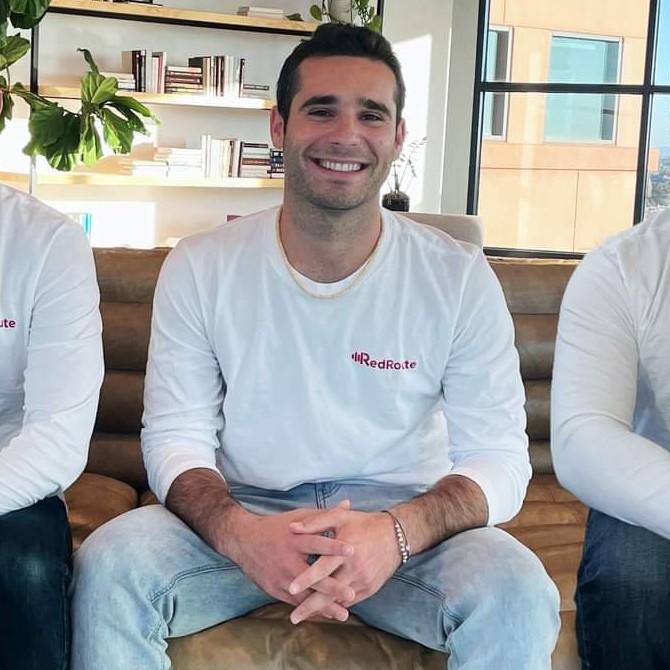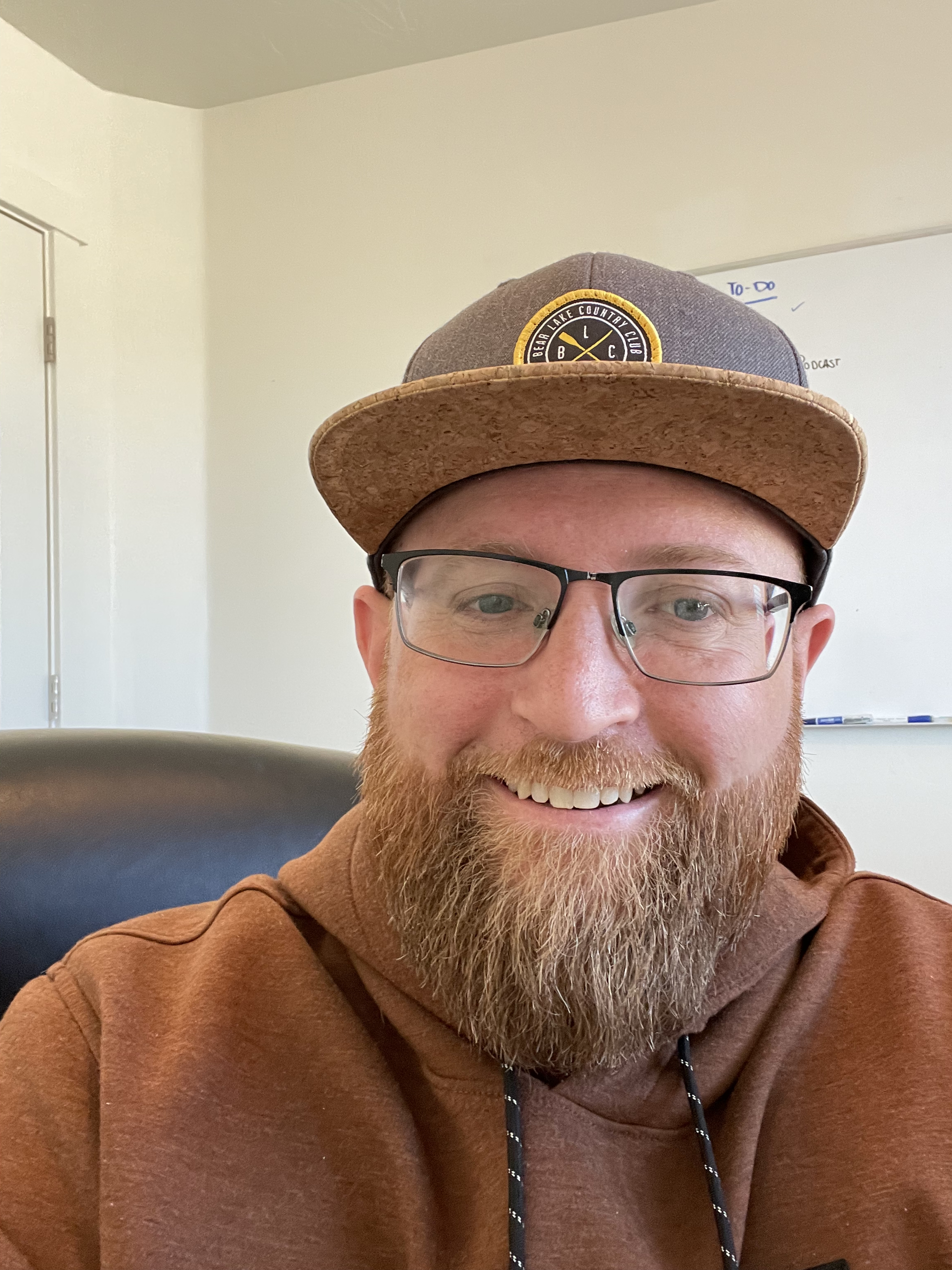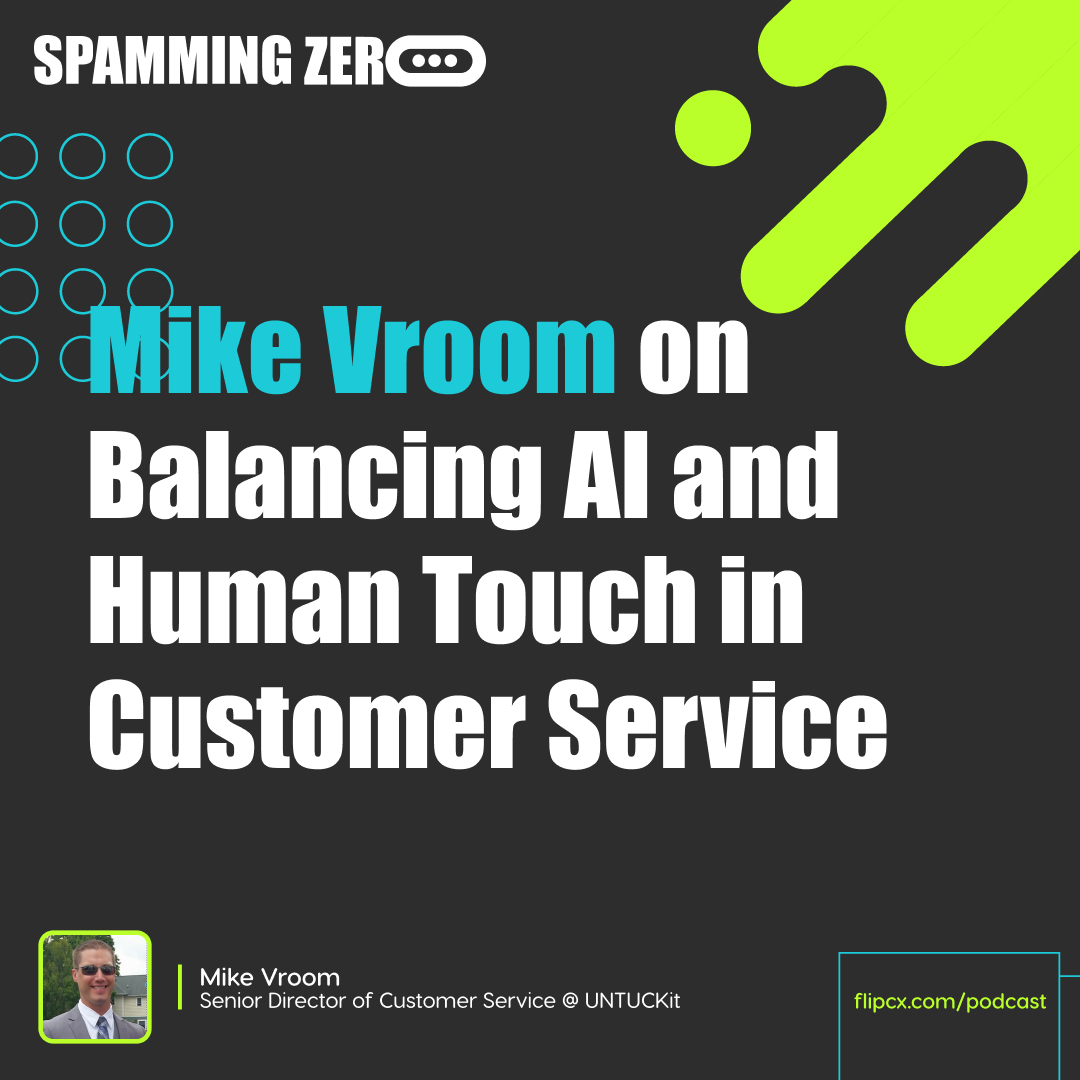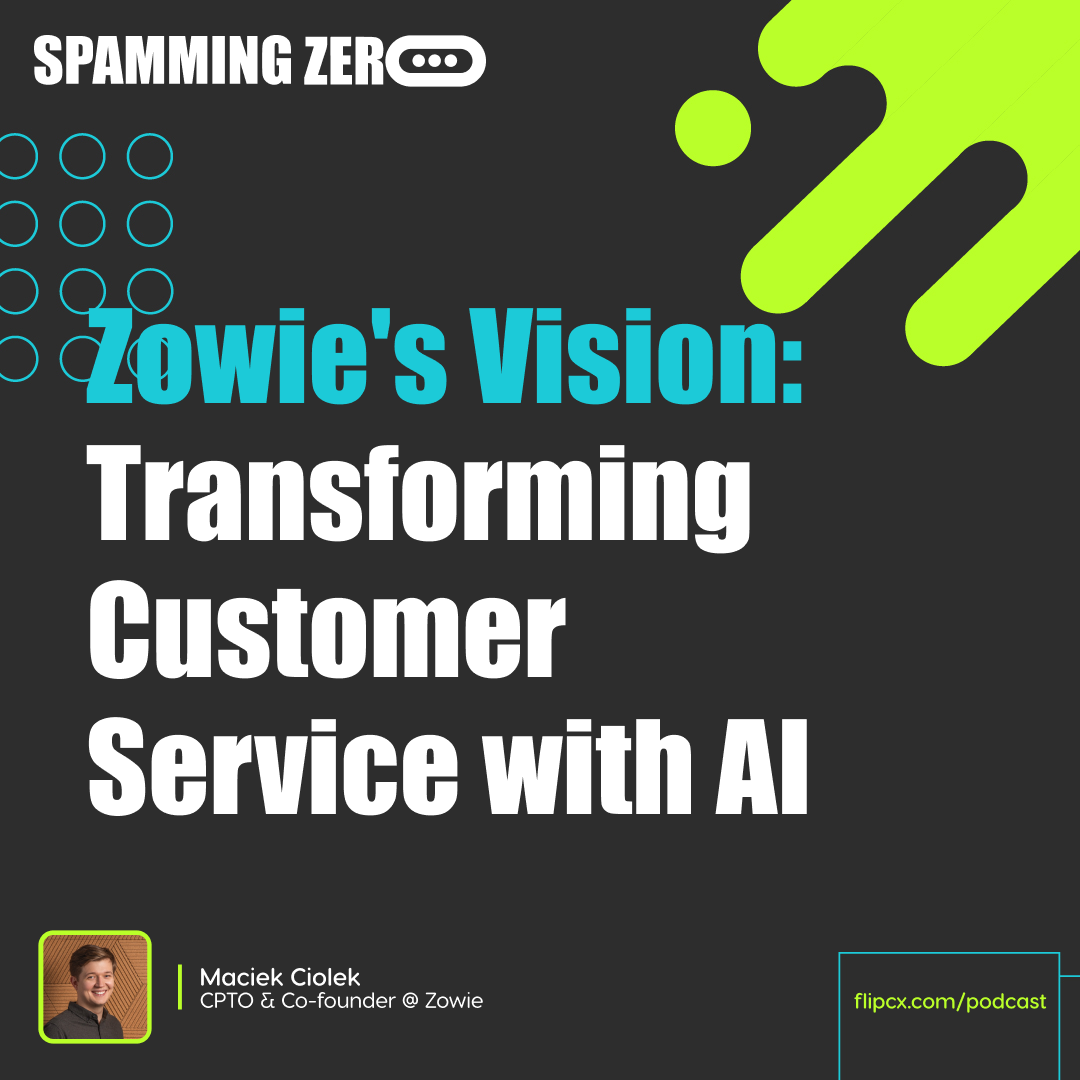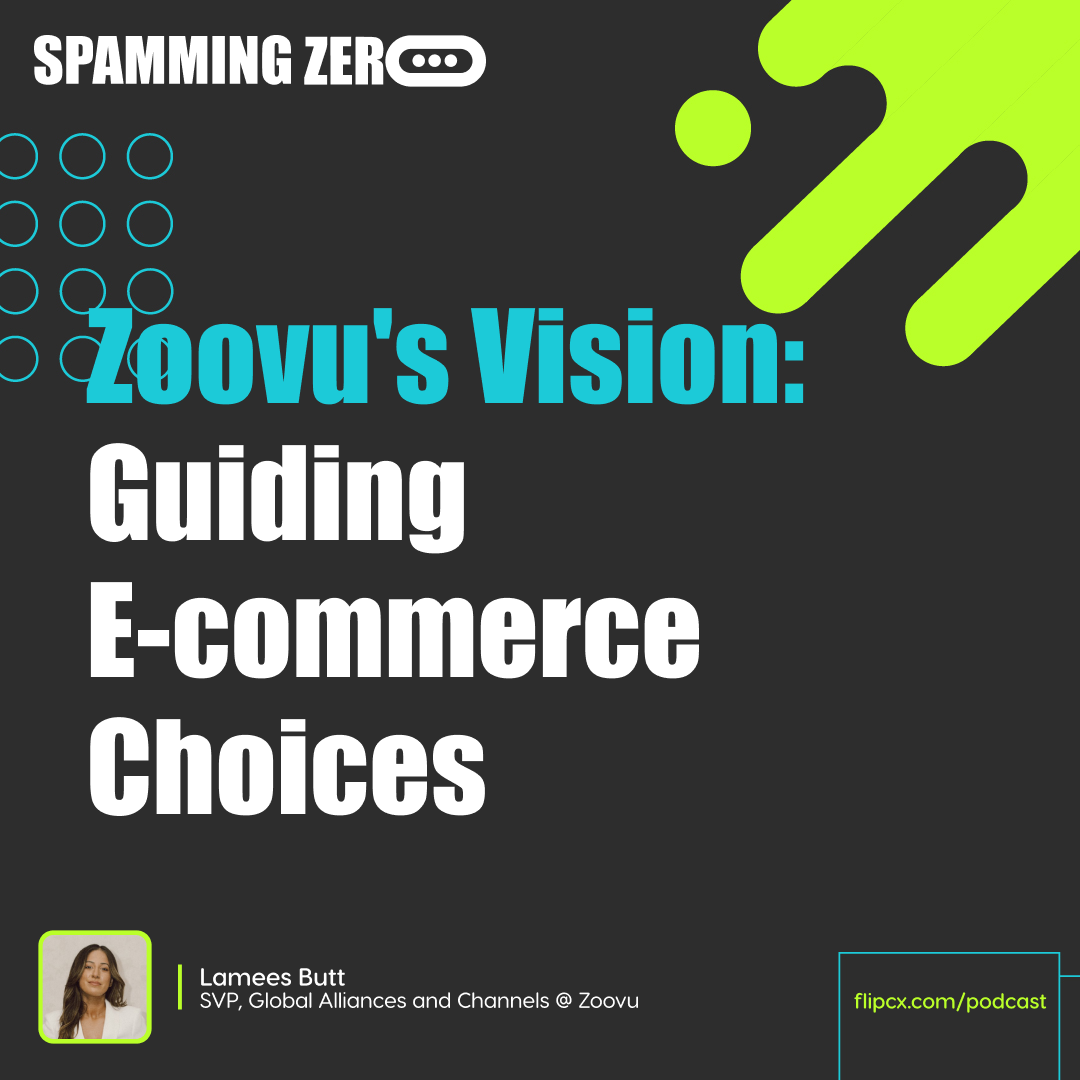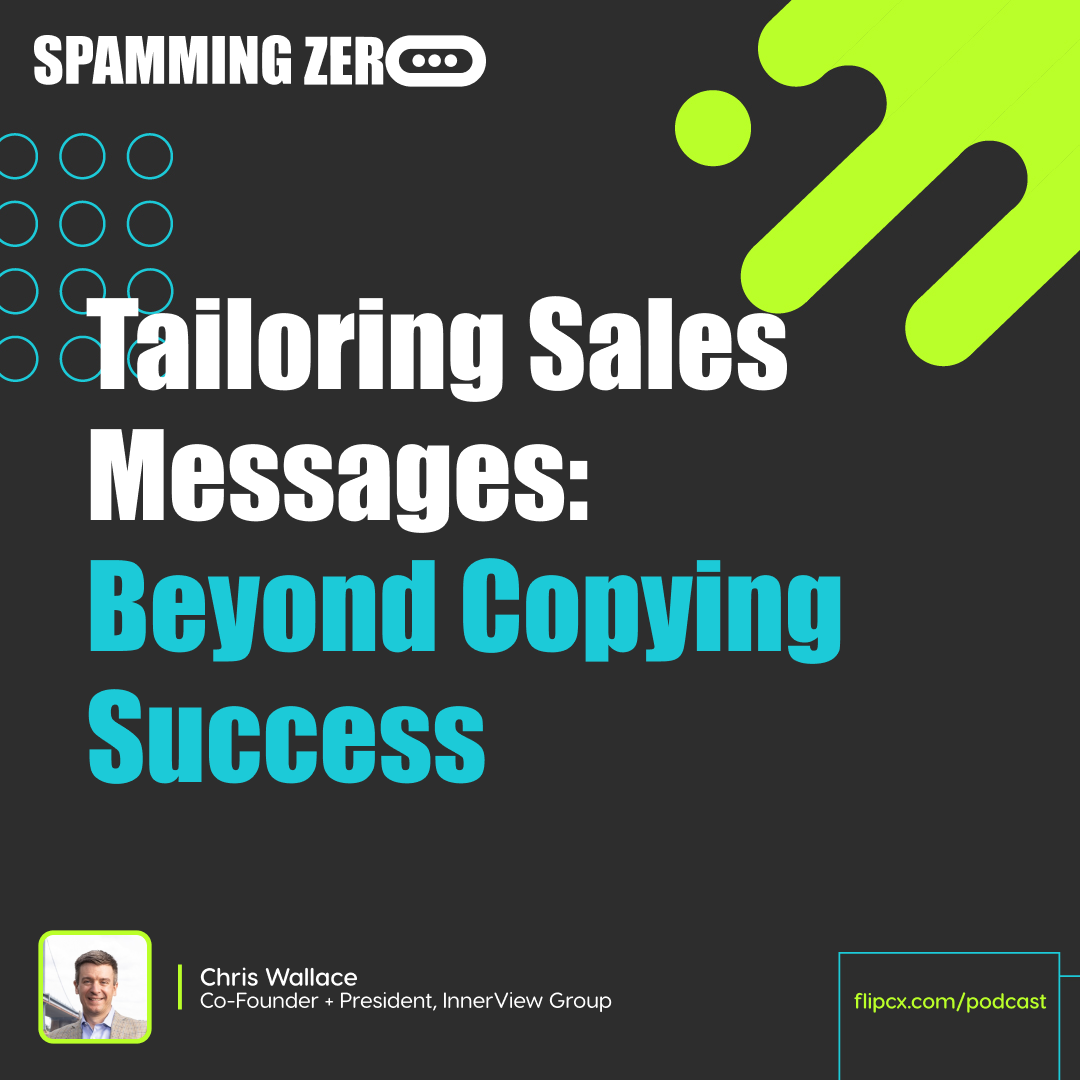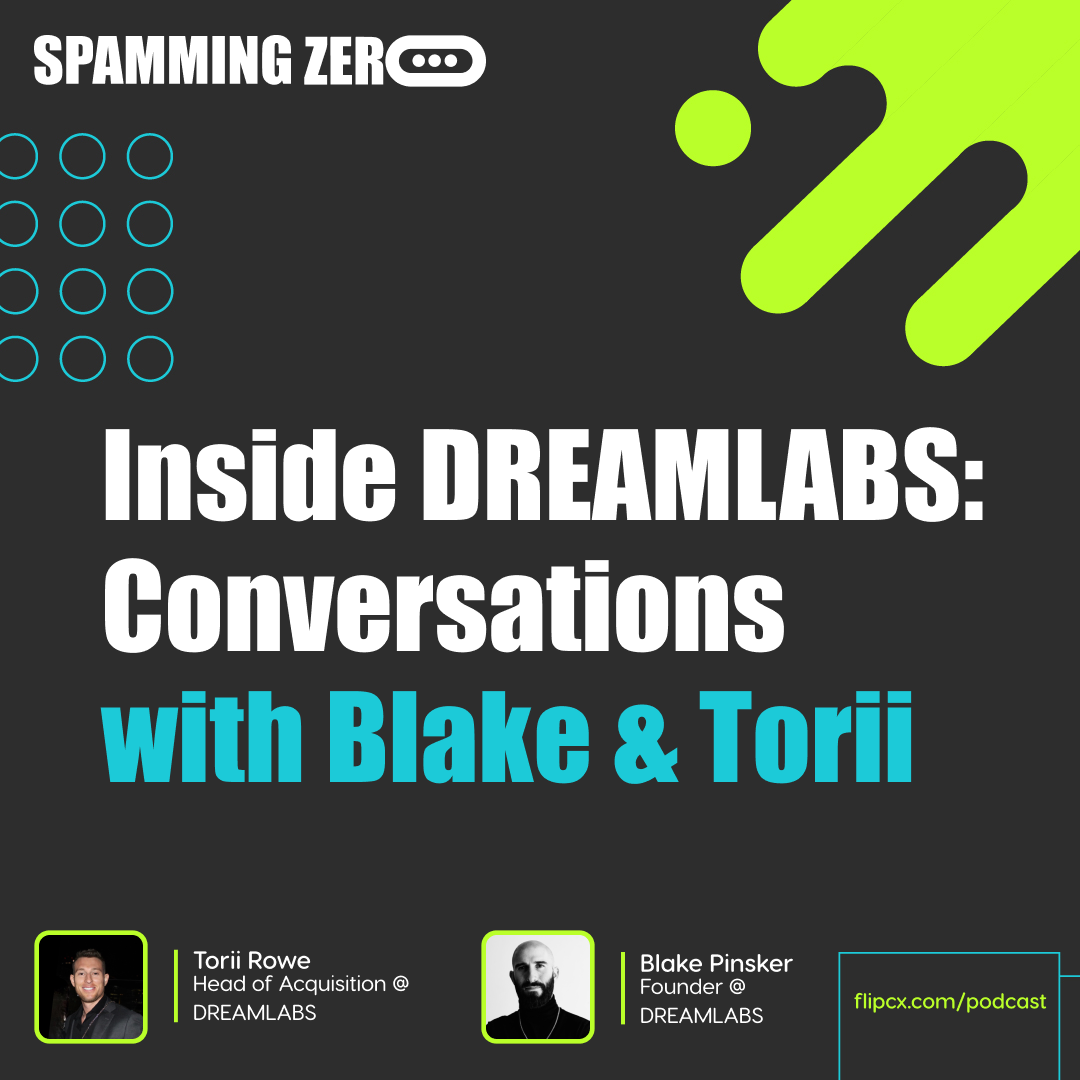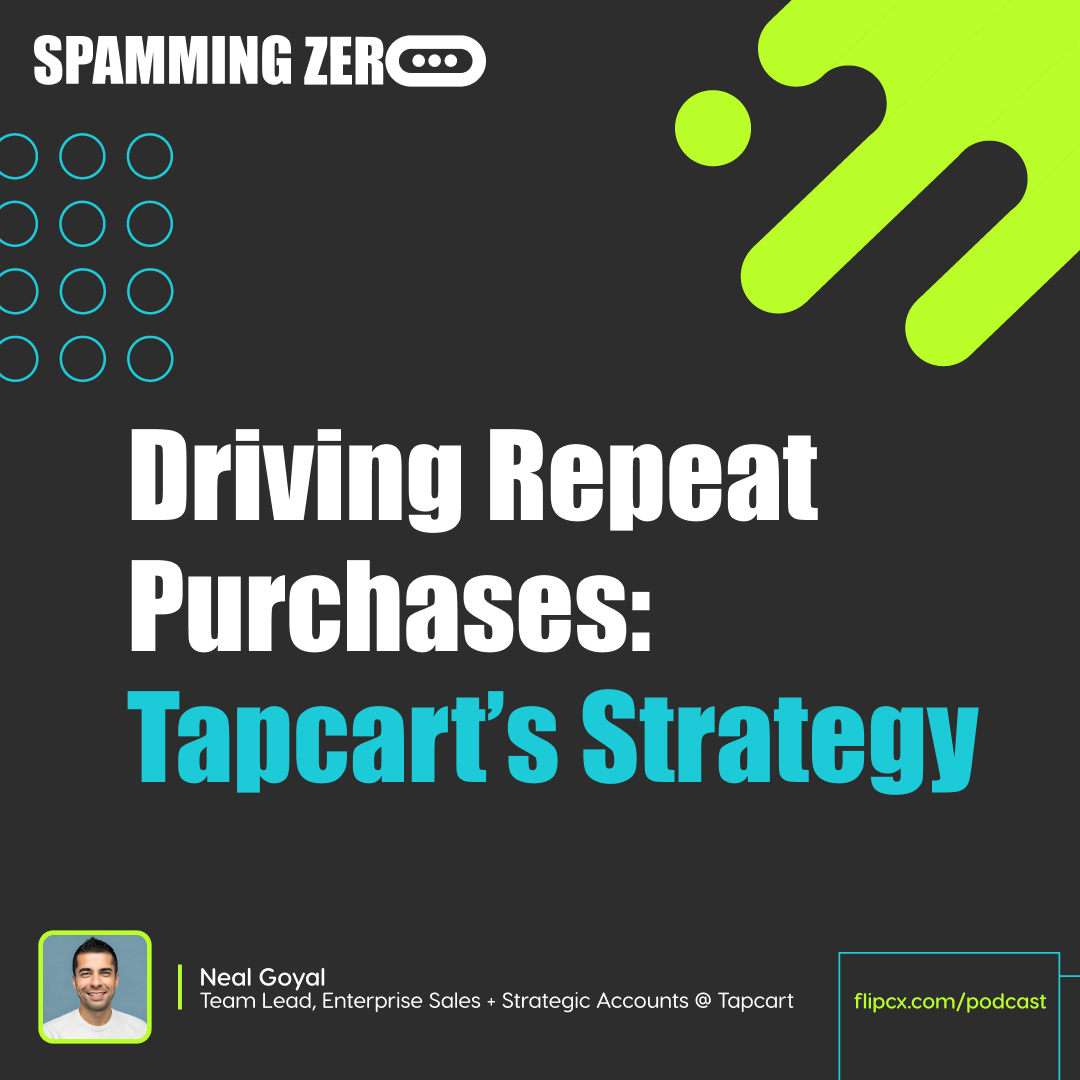Episode 33: Building Careers In CX - A Tribute To The Work Of Jack Lorentzen, with Ben Bradley of Frances Valentine
- 0.5
- 1
- 1.25
- 1.5
- 1.75
- 2
James Gilbert: Hey to all of our listeners. Today's episode is extra special for us and I'm going to tell you why. This episode is going to be hosted by Jack Lorenzen. Jack was an incredible human being, somebody who would light up a room. And unfortunately, we lost him on Christmas Eve of 2022. He was so excited about doing this podcast, so excited in fact that we had plans for him to do his inaudible working with the guests that you're going to see him work with. He had recorded two episodes, this one that you're about to listen to, and another one that we're going to release in February. We want to dedicate those episodes to him and dedicate one episode every month to him from here on out. Jack was a close friend. He was an amazing human being. And if you don't know enough about Jack, he was a customer experience advocate, helping people grow in their career and just so amazing at what he did. This one's for you, Jack. Hey, to all of our listeners out there, this month's sponsor of Spamming Zero is HiOperator. We had Liz Tsai, who is their CEO on our podcast just a few weeks ago. If you haven't checked that out, make sure you do that. It's amazing. Great episode. We talk about customer service agents. We talk about lifetime value. We talk about a lot. So who's HiOperator? I'm going to read directly from the website that HiOperator has. This is a beautiful statement. I love what Liz says here. " Customer service is a core pillar of most businesses. It's also one of the hardest parts of the business to scale. Hiring is time consuming. Training is time consuming, and volume varies by season, and documentation is constantly in flux." All true, agree 100%. " We started HiOperator to make delivering customer service easy. Our mission is to help companies deliver excellent, scalable customer service effortlessly. Our clients can focus on their products and services and their customers get a great experience when they need help. HiOperator provides a complete customer service as a service solution. Through the power of HiOperator's human plus AI technology, client conversations are handled faster and more accurately." The end result, they deliver amazing customer service making companies and their customers happy. That's why they exist. That came directly from Liz. Here's some other fundamental stuff that I really like that they do, some value add here. So train us once. We handle all the recruiting, hiring, and training moving forward. Never have to deal with another classroom, retaining or headcount headaches. They say this. " Send us conversations, send us tickets. We pull the tickets automatically from your preferred CRM and then you have full control over how and when those tickets are used." Another one, paper resolution. This is something we do at Flip as well, charge for the conversation that we actually solve. No onboarding fees, no hourly rates. Pay for what you use. This is HiOperator. They're this month's sponsor.
Jack Lorenzen: My name is Jack Lorenzen. I'm a senior manager of CX here at Brooklinen. Today, I have Ben Bradley with me, who's the senior manager of Ecommerce at Frances Valentine and inaudible. Thank you for being here, Ben. I'm so excited.
Ben Bradley: Yeah. Likewise. Thanks for having me. Excited to talk.
Jack Lorenzen: Ben, please tell us a little bit more about yourself.
Ben Bradley: So I am the senior e-com manager here at a company called Frances Valentine. I was an original employee, so I was hired back in 2016 when the company launched. And just a little bit background of Frances Valentine, it was started by Kate and Andy Spade, an original Kate Spade founder and Katie's best friend, Elyce Arons. They had sold Kate Spade back in 2007 and after taking some time off and growing their families and just taking a step back and enjoying life, they decided that they wanted to get back into the world of fashion. So therefore came Frances Valentine. I was hired as the customer service and operations manager, and over the last seven years, have moved into a few different roles now, like I said, landing me into the senior Econ manager position.
Jack Lorenzen: I think we can make a connection right off the bat between you and I just being at the same business for so long because I have had the pleasure to work with the Brooklinen team for almost seven years. So today, we're going to be talking about building careers in CX and I'm so excited to talk about this topic. I think I've seen this topic talked about in the space. As I see more and more people posting on LinkedIn, having their own podcast conversations, webinars, whatever it may be, we're really, really getting into the weeds of building careers in this space, which is so exciting. I think brand loyalty is something that we wanted to talk about today. So how do we feel like brand loyalty feeds into creating a career in CX? Because I think it's a huge component of that.
Ben Bradley: Yeah. I think the overall gist of CX is really just taking a look at the total customer journey that they have and all of the different touchpoints that they have and coming to the website all the way through purchasing the product and receiving that product. And so ultimately, you want all those different areas of the business and all of those different touchpoints to be optimized and performing the best they can and having things be simple for the customer and all of that, creating a good experience for the customer is going to lead you with inaudible having built a loyal customer base.
Jack Lorenzen: I know that we both had days in our careers, at our businesses, where it might have not felt like the most productive to stick around maybe. Have you had days like that?
Ben Bradley: Yeah, absolutely. I think that everyone, like you just said, everyone has those days. If you aren't having those days, I'd love to know what you do for work. I'd be a little bit curious about that, but yeah. Certainly, customer service and CX in general, it's definitely you're going to have some challenges and curve balls thrown your way and no day is going to be perfect, so yeah. Certainly, I've had some frustrating experiences where I've questioned certain things or definitely had a tough day.
Jack Lorenzen: I think celebrating. Celebrating wins is so huge to keeping-
Ben Bradley: For sure.
Jack Lorenzen: ... ateam engaged. I could speak on this, but I'd love to hear your thoughts on any ways that you're currently celebrating wins, especially at this time of year.
Ben Bradley: I think just something that's super simple, but I think the fact that since it is simple, it gets overlooked is just positive reinforcement or celebrating a win right in that moment and not waiting for a monthly meeting or a weekly recap. At Frances Valentine, even though we've been in business now for seven years, we're still a leaner company, so we are in constant communication throughout the day. And so I really do my best to try to celebrate those wins in the moment and tell an agent that they did a great job, or congratulate them for converting to a sale or-
Jack Lorenzen: Love it.
Ben Bradley: ...if they share a positive customer story that they had that day, recognizing that. So I think that that, just getting that in the moment recognition is super important because that pushes you through the day. And then it also lets your team members know that you're paying attention to what they're doing every day and that you're mindful of that. So I think that that is something that's really easy to do and it might be overlooked a little bit. And then on a broader scope, just making sure that other teams in the company that might not be as closely involved with the customer journey are aware of the hard work that's going in and the victories that the customer service and CX teams are having. And so maybe a monthly meeting or a weekly recaps is a more appropriate time for that, but-
Jack Lorenzen: I love it.
Ben Bradley: ...really just communicating these wins and letting them know that the hard work is appreciated and is not going unnoticed.
Jack Lorenzen: Do you think it's easier to do that because we were sitting in the seats that our agents are sitting in right now?
Ben Bradley: Yeah, absolutely. I personally, I know how much it means to get a piece of positive feedback or get a thank you or hear that something I did was valued or resulted in a success or a win for the company. So growing from that, starting as an agent and then moving my way up throughout different roles in Ecom, I had that experience of loving those positive reinforcement moments. And so I do the best that I can to make sure that I'm giving those moments to the agents and the other people on my team, exactly like you just said.
Jack Lorenzen: I love that. I completely agree. I remember days where I was mostly on the phone, so I would come in and we were only taking voicemails at a certain point just because we couldn't even man a live phone hotline, if you will. And I came in and there were 75 voicemails that were really just for me to take on that day. So I would say getting even a quick Slack message from my boss like, " Hey, you know what? I actually listened to that phone call from across the office," or, " Hey. I actually went into our recordings and checked out a phone call from last week. You crushed it." We're not even talking about rewards. I'm not even talking about, we used to give gift cards. We use a platform right now called Snappy where we send out rewards in a very streamlined fashion, but just having that feedback in real time, like, " Hey, I know that you had 75 calls to get back to this morning, but you're doing a great job, it doesn't just change your day. It changes like the outlook of the entire job for the week ahead, for the month ahead, for the quarter ahead. I want to hear your thoughts on this piece as well, of course, but I think when we work in such fast moving spaces and our pace is just we set goals, we fulfill those goals, but after that, we're just onto the next goal. And something that I consistently challenge my team on and something that I like to lead with is celebrating wins every step of the way. I need to take time to celebrate them, or else they're not going to want to stick around.
Ben Bradley: Yeah. Yeah, exactly. And like you were saying, just giving them that positive reinforcement. It's not just changing their day. It's changing their entire outlook. And I think that it just motivates them to want to continue to do a good job and maybe take that extra step or go the extra mile to continue to try to further their career or just continue to put in that extended effort that inaudible, getting that recognition is super vital.
Jack Lorenzen: So you just said something so important, and it's getting that recognition is really what ultimately feeds into creating a long- lasting role in this space. That's exactly what we obviously want to talk about today. So switching gears a little bit, building a career in CX. I'm so hyped to talk about it, and I know that we've had some nuggets already of feeding into this topic, but what even comes... For me personally, before I started working at Brooklinen and I was at a customer experience consulting firm in Hackensack, New Jersey, but before I got to Brooklinen, I almost thought of CX as a career could be looked at as an oxymoron. How could you make a career out of something that might not be the most rewarding or might feel like you're being tasked with the angriest or most disgruntled customers because something went wrong in the order path or the total order journey or in shipping, whatever it may be? So for you personally, what comes to mind when you think about building a career in CX, and how does that apply to, once again, you personally?
Ben Bradley: Yeah. So I think starting with what you just said, I do think that a lot of people look at a career in CX as something very almost close- minded or really only one area of opportunity, which I think people just assume is just being the customer service agent and on the receiving line of calls or tickets or emails or however these companies are handling these customer service inquiries. So I think that it can seem almost a little bit closed off and not really possible to make a career, but when really taking a look at all the different components of CX and all the different things that go into it, you realize that that's really just one component and teaming up and working with other team members within the company and other departments that are vital to this customer journey, whether it's the creative team, making sure that all the assets are up on the website or in the creative. And then we have our digital marketing, making sure that messages are being created and ads are running appropriately and product and development, taking customer feedback and giving it to them to maybe make improvements to products. I think that taking that initial mindset of it's only one facet to this and getting that out of your head would really lean positively into someone wanting to build a career in CX because there's so much more that goes into it.
Jack Lorenzen: I like how earlier you mentioned looping in other teams so that they can really get a... Whether it be a monthly full team- wide meeting where CX has a seat at the table where we say, " Here's all the things that happened at the business. Here's how they translated into how our agents were working, and here's why our SLAs were effective," for example. But what other ways can we really think about really driving that value and making that value known to other teams? Because when I think about, and I'd talked about some of our other teams on previous podcasts or on a webinar, maybe, every single team at Brooklinen has a very specific role at the business, but they're just so all over the... The creative team is doing a lot of work before Black Friday, for example. They're getting in all the assets. That's their summer really, is getting prepared for Black Friday and we're more in real time. So just brainstorming right now, what are ways that we could make CX more widely valued at any company?
Ben Bradley: I do think that at a company of Frances Valentine's size, the fact that we are small, just keeping that open line of communication open within all the different teams in the company and continuing to monitor the projects that they might have been working on, even if they're finished. Like you just said, very similar at Frances Valentine, all the creative and stuff for Black Friday, Cyber Monday, ads were secured and sent and ready to deploy weeks before, but then they're moving on to the next task. So I think just continuing to monitor something that might not be in the picture at the moment, but then following back up on the success of that effort that was put in and closing that loop is super important. I think you touched on a little bit earlier too, that it's we complete one thing and it's onto the next and then complete it and then onto the next. So I think making sure that we're not losing sight of what we did in the past and the results that came from that and still speaking to that is super important, and just keeping that communication open. I know at least personally, everyone at FE really likes to hear about other areas of the business and we do do our monthly meetings where all the different departments have a seat at the table and really just reiterating all of those successes and things that each department hit home, I think is probably the most obvious way.
Jack Lorenzen: It's interesting when someone on another team reaches out to a leader on my team. Let's say they reach out to me and say, " Hey. One of my friends had a bad shipping experience." I wish that there were maybe more ways to highlight the things that aren't going so perfectly because we're running a business that is moving a million miles a minute. I'm so thankful about that, by the way. I know you're thankful to be a Frances Valentine. I'm so thankful to be at Brooklinen. We believe in the product. That's so important. But I think creating an atmosphere where you can highlight some of the things that aren't going so well is what makes the good stuff that much more powerful and that much more impactful. Because if we're just telling everyone that we're getting back to customers, if our first reply time on a monthly basis on chat, for example is under X seconds, that's a great update. I'm so proud of my team for doing that. But I also want to highlight the things that we could improve on so that everyone feels like they're really involved in building that success because I need to make them feel what we're feeling on the CX side. We run really impactful and productive teams. Once again, so proud to say that. But I think highlighting some of the... It's core competencies and it's our core rigidities. It's the things that we might not be so good at, so let's create an atmosphere of highlighting those things so that when we really are ready to talk about the positives, they're that much more impactful to talk about.
Ben Bradley: Yeah. I think that's a great point. I think trying to also focus on making sure that the culture that's being built at your company feels like a safe space and that people are comfortable across departments coming to you and maybe like you said, highlighting a poor shipping experience that they had or someone at the store walked out and realized that the item they bought had a rip in it and they didn't see it, so we had a damaged product on the floor, or something like that. Making sure that people feel safe and comfortable to address maybe some other areas that might not be doing so well, like you said, it's super important because even if there was a mistake or one API, or something isn't performing as strong as others, it's still a learning experience and you can take something from that and improve on that. And like you said, when you're able to address something that's not going so well, when you have victories and big successes and wins to talk about, it does make it that much more rewarding to address those.
Jack Lorenzen: Taking a step back, going back, obviously, we're talking about some really important items today and how this feeds into our careers in CX. We've both been at a business for a really long time. We've stuck through ups and downs, through different eras of success, if you will. But I think it's so powerful that we're still in this CX seat. And I think one of the things I wanted to definitely mention today is that people do look at a role in CX as a stepping stone. It's that first entrance into a business. You feel it out, you get to learn about the customer, you get to learn about how multifaceted it is, all the other teams that are coming in and affecting your role, but then it's time to move on to a new role.
Ben Bradley: Yeah.
Jack Lorenzen: So what are your thoughts on CX as a stepping stone? Because I want to break down the stigma.
Ben Bradley: Honestly, I think that it's one of the best opportunities that someone can have because like you just said, it is that initial entryway and it does lend you so much exposure to other areas of the business. And like I was alluding to earlier, you start to realize that so much more goes into the overall customer experience than just replying to an email or a ticket or a message that we get on social. I think that the stigma of it being a stepping stone really shouldn't be a stigma at all because the fact that you're able to get a bunch of outside experience outside of the role you were hired for is so valuable at your current company or a future company. Using that to maybe get to another area of the business that you're interested in learning about or maybe pursuing a career in, that experience is something that I think a lot of people maybe wish that they could have and they feel like they might be a little bit pigeon- holed in their current position. And so I don't think that anyone should really be looking at it as a bad thing, taking this and maybe launching it into another aspect of your career,
Jack Lorenzen: So much resonates with me from that, and it's the pride factor. Being proud to have this multifaceted role where we're getting to hear about so many other parts of the business and a decision made by another team directly affects what our colleagues are working on in CX. So I absolutely love that. In terms of maybe any anecdotes or any stories that you have just simply around, " Hey, I am in the right place, being in CX," and what comes to mind?
Ben Bradley: I think even going back to when I was hired and was doing more so of the agent level work, I think getting recognition from customers directly, just hearing someone, they call in and they got the order and then they just want to let me know how much they appreciated how easy the experience was and how helpful I might have been in determining a size or a color or following up on a shipment that might have been delayed, or hearing those personal messages from customers that you helped along the way to get the product, that was always super rewarding. And yeah, that's something that I always really appreciated. And then hearing feedback or recognition from other areas within the company, if you're giving some insights as to what customers are looking for or sizing or things like that and conveying that and then seeing those changes get implemented, that's also a super rewarding part of my journey, and I think an overall journey within CX.
Jack Lorenzen: I remember seeing reviews early on when I was an agent and it was like my phone call with Jack turned around my entire day. That's what kept me going in CX.
Ben Bradley: Yeah.
Jack Lorenzen: It really did.
Ben Bradley: I saw a review that came through that mentioned me specifically a few weeks ago, and I was surprised because I'm not so directly involved in the day- to- day communications with customers anymore. But like I said, we wear all hats. So it's certainly not out of the question. And it was, even though it might not be my main responsibility anymore, just seeing that recognition even a few years transitioned out of that role, it's rewarding and it's nice to know that you made someone feel good. That's definitely the goal here at Frances Valentine, is to make our customers happy and provide products that make them happy.
Jack Lorenzen: I want to spend a little bit of time on this because it's important, but I think it's something that needs to be talked about from when we think about starting a career in CX. Sometimes, the salaries are not attractive, especially looking at consumer behavior as a whole right now, the way that the market's acting, people looking for CX entry level roles and maybe even breaking down the stigma around entry level. Because at this point, I look at my in- house CX associates as well as my remote CX associates, they're technically extremely apt. They have to work with a bunch of different platforms. So the way I see it is we can keep pushing to create a salary that's a little bit more attractive. And it's really reflecting what this role is about because when we... I'll speak for myself for a second. When I started this role in 2016, we were really just manning live channels and emails. And yes, we had to do some background work with some systems, but to look at our tech stack today and what we really expect, and expect is the key word, what we really expect our agents to be proficient in would be a very large group of platforms. So what are your thoughts on this? The idea of entry level when it comes to CX and the salary that associates itself with something that's entry level?
Ben Bradley: I think starting with entry level, I think it goes back to a little bit of what I was saying. I think that the term, right off the bat, might seem unappealing because it just, like you were saying, is as you were looking at your employees and you're saying that they're technical enough and they can do so much more than maybe on paper what an entry level job might say is required of them. But I think just looking at entry level as an opportunity, like you said, to get your foot in the door. And even though it may be a starting point that you might not want to be in right away, if you got your foot in the door and then you're going to start to get all of that experience that we were just saying is so vital... And it's not an end all be all. I think if anything, it's, " Okay. I did well in my interview, I got the job, I'm part of this team. Now I can really start to show the skills that I have and I can go above and beyond." And I think that that leads into salary. I do think that an entry level salary, like you were saying, should maybe be a little bit higher to reflect the level of work that is expected. And like you were saying, when I started in the customer service manager role in 2016, yeah, we didn't really have very many systems in our tech stack at all. We were using Magento. Customer emails were coming directly into my personal Frances Valentine email. We weren't using a ticket managing system or a returns portal. And over the course of now seven years, you look at the tech stack and all the different tools that we're using Flip and Gorgeous and Loop and inventory management systems and all these things that people are starting to get skills on but might not be rewarded for right away with the entry level, I do think that an entry level salary should be a little bit higher and that people should maybe start to realize that someone that might get an entry level job is really capable of doing so much more.
Jack Lorenzen: It's so important that not only are we celebrating the wins of our CX team by really highlighting what our colleagues are doing, we need to celebrate them in terms of compensation as well. Personally, if I have colleagues that are moving to New York City to be a part of this team, we do have to think about things like that as well. Where they live, the living expenses-
Ben Bradley: Cost of living.
Jack Lorenzen: Yeah. Cost of living, everything.
Ben Bradley: For sure.
Jack Lorenzen: So in terms of team structure, so shifting gears a little bit, because team structure, I think, is another really important aspect when a colleague is thinking about building out a career on the team. " Hey, there's this many people above me. My manager is this role," whatever it may be. " Here's my growth path that I'm thinking about in my head right now or the one that makes sense," after talking with your manager about it, of course. But for you personally, what comes to mind when you think about your team structure and maybe personally for you, how you moved up the ladder?
Ben Bradley: Like I was saying a bit earlier, we're definitely a little bit smaller on the scale of company size. So we really only started to hire more, per se, within the last year, year and a half, we've seen some growth in terms of employee size. So our teams have always been a little bit smaller, but I think that the higher ups and directors and our CEO, they've, they've done a really good job of hiring those high level people and then building the necessary roles underneath them. I think that while we're still smaller in scale compared to other companies, I think something to think about when building out CX teams is just making sure that your roles are clearly defined and that you have someone within that team that's going to be covering all those bases. Because like we said, customer experience, it's not just one lane. There's so many different areas of the business that touch this overall customer journey. So making sure that everyone within the company, different departments aside, have their specific role set and what they're responsible for. So that way, all these different areas of the business are being covered and that way, your team is operating at the most successfully that it can and really streamlined. And for me personally, I think that just being brought in at that entry level position and starting out really as an agent and then as the business has continued to grow, we've been able to expand that team. I've always just been very vocal about wanting to move up and ultimately, I would love to be in a director position, but I've gone from manager to senior manager. So having that defined career path and then being able to have an open communication process or open dialogue with the higher ups that are above you and let them know what you're interested in is also really important. I've been very fortunate to work with people who have been very supportive of me and vocal of things that I would like to be involved in or something that I would've liked to eventually get to help out with. And I think that's really important too, to know that you have a team that's willing to have your back and help you progress in your career.
Jack Lorenzen: I'm lucky enough to say the same exact thing, but what's such an important aspect of that idea is the work we need to do personally to create a growth path in CX.
Ben Bradley: Yep.
Jack Lorenzen: I've mentioned this in the past and I'm very passionate about talking about this, so I'm happy to mention this again. I had my aha moment with my boss at the time when I was really just, " Hey, I want to manage..." A big part of my job is managing our remote team relationships, and something that I'm so proud of is that they are perfect extensions of my business. From a customer's perspective, there is no difference in the service you're getting from a remote team colleague versus an in- house team colleague. And that's taken a lot of planning and a lot of work to create a holistic and consistent customer experience. But that's really something that I was passionate in, was supporting my team by way of building it out so that we can offer things like 24/ 7 live chat, but also really thinking about what I really wanted out of it. I wanted the people management aspect. That's something that I'm so passionate about. And also, from a customer's perspective, really not letting them see that there was any difference because they are perfect, once again, extensions of my business. But a career path didn't really exist until I really put that idea out there for my boss. So how did that come about in your world?
Ben Bradley: Yeah. So I think that once when a business started to grow, like I said, when I was hired, we were doing everything very bare bones. Like I said, it was really just direct emails coming in and we didn't really have these platforms or tools that were organizing all of the tickets and making a return more simple and automating things. And so once the business started to grow and customer service volume started to increase, I was vocal about wanting to move away from a direct one- to- one customer interaction, and I wanted to focus on these systems that needed to be implemented in order to enhance the customer experience and make the job of customer service agent easier. As we started to look at different options for returns processing or customer ticket management and even phone with Flip and things like that, I was tasked with going out and looking for these different platforms and what is best in practice and then presenting different options and ultimately, with what we would decide, I started to get into the role of learning these systems and then training our agents and things like that. So looking for ways to grow the department that I started in is what I started to be vocal about. I've always been a very system oriented and detailed person. I learn those sorts of things quickly and I like figuring out ways that we can optimize systems that we have. And so realizing that there was starting to be an opportunity to grow that department and add things to make that department operate more efficiently is how I started to begin my career path here at Frances Valentine.
Jack Lorenzen: I very much respect that.
Ben Bradley: Thanks.
Jack Lorenzen: And that really came into play because that was a passion that you had and you really took that on and so that your manager could facilitate it, right?
Ben Bradley: Yeah, exactly.
Jack Lorenzen: Exactly. That's exactly inaudible-
Ben Bradley: Yeah. And then going back to communication and feeling like you can go to your boss or just express those things. It's one way to get you forward and if you're not letting other employees or other people in the company know what your future aspirations are, then they're not going to be aware. So I encourage anyone in a CX role to look for those opportunities and express interests in where else that they might be able to go, because like we said, entry level is not forever.
Jack Lorenzen: Absolutely.
Ben Bradley: It's a door opening for you.
Jack Lorenzen: What do we think about when we think about, with everything that we've talked about today, when we go into any sort of hiring in 2023? Hypothetically, we go into hiring. What are we really looking for when it comes to these CX associates or anyone that you're bringing on your team for that matter? It could be at any level. What kind of things are we really looking for when it comes to personal attributes?
Ben Bradley: I think right off the bat is you want someone who has worked with teams or has a teamwork mindset because it is so important to be able to work cross- functionally. So I think that willing to work with other people mindset is super important. I think critical thinking is super important. Oftentimes in CX roles, we're thrown curve balls or a system glitch happens and there's order errors. So just being able to jump into a task head on and think of different solutions. And then in terms from that, start to think more proactively in how we might be able to avoid certain problems similar to that in the future is super important. Like you were saying just I think with all of the tech that's out there currently and in so many different things that you can add to your business, I think having a certain level of technical skill is important because things are ever changing and you might have one platform that's best in practice and then a few months later, it's not the best in practice and something might be less costly but more efficient for you. And so being able to adapt to those changes and learn new technical skills, I think, is also super important because those systems are super imperative to the overall customer journey. Those are a few that initially come to mind for me.
Jack Lorenzen: I echo exactly what you said with some of the attributes that you put forth or all of the attributes you put forth. Mine for me is that I am so passionate about, with my directs with anyone that I've managed in my career, it's do not be afraid to fail. Do not be afraid to make a mistake. And it sounds cliché. It sounds like something you're going to hear at the end of a Disney movie or something, but-
Ben Bradley: But it's so true.
Jack Lorenzen: I can't have colleagues on my team that are afraid to own a mistake because some of the mistakes that I've owned in my career have made me exactly who I am today, and I'm proud to be a CX leader today with some of these mistakes in mind.
Ben Bradley: Yeah.
Jack Lorenzen: One of the first examples I give anyone joining my team is we were on desk. com back in, I think it was like 20 6, 2017. I don't even know what it is at this very moment. However-
Ben Bradley: Yeah. I don't know if I'm inaudible.
Jack Lorenzen: Yeah. Super old ticketing platform. But I left an internal note for my manager, Justin, at the time. And instead of an internal note that was like, " Hey Justin. I need you to check this one over for me." I sent it right to the customer. That was on day two. I remember beating myself up over it. And then I think even Justin at the time was like, " There are going to be so many mistakes that are made in your career, and it's really not about sitting around and being upset about them. It's really just using it as a catapult to move forward."
Ben Bradley: Yeah. Recognizing it, taking ownership of it, realizing that... I like to tell my agents this all the time too, is we're all human. To expect someone to perform at 100% and not making a mistake... A mistake is a mistake. It wasn't intentional. Things happen and yeah. Like you said, it's not something to beat yourself up about and dwell on and linger in the past. It's own it, what can we learn from it and then keep yourself moving forward because everybody makes mistakes, absolutely, myself included. I've done something very similar to that. I've sent an email to a customer I intended to go to another employee. I've left a few products on, continue to sell without stock, so we've oversold a few items in my seven years and then having to go and break the news to those customers, or try to find inaudible from stores to fill. Yeah. Things happen and it's just recognizing it, learning from it, and continuing to grow.
Jack Lorenzen: So I'm happy that we could end on this point right here. Huge part of creating both of our careers in CX has been owning mistakes so that we can learn from them. And that's-
Ben Bradley: Absolutely.
Jack Lorenzen: Paramount. Paramount. Ben, it has been such a pleasure to have you on.
DESCRIPTION
One of the kindest, most genuine CX pros I ever met was Jack Lorentzen. Over the course of a zoom conversation, he could make you feel like an old, valued friend - truly seen and heard.
Jack passed away suddenly this past Christmas Eve. With the permission and encouragement of his loved ones, we’re sharing the two episodes he filmed for what was going to be called our “Back To The Customer” series.
In this first episode, Jack spoke with Ben Bradley, Senior Manager of E-commerce at Frances Valentine - all about building a career in CX. Something Jack was passionate about.
What was covered?
- Keeping the customer first and foremost in our minds
- How brand loyalty feeds into creating a career in CX
- Favorite ways to celebrate wins
- Working with other teams, and making CX’s value known
- The idea of CX as a “stepping stone”
- Money where your mouth is: making CX salaries more attractive
- Defining moments in both of their careers
- Hiring: what personal attributes are being looked for in CX?
- And more
Ready for more Spamming Zero conversations ahead? Listen, rate, and subscribe on Casted, Apple Podcast, or Google podcasts.
